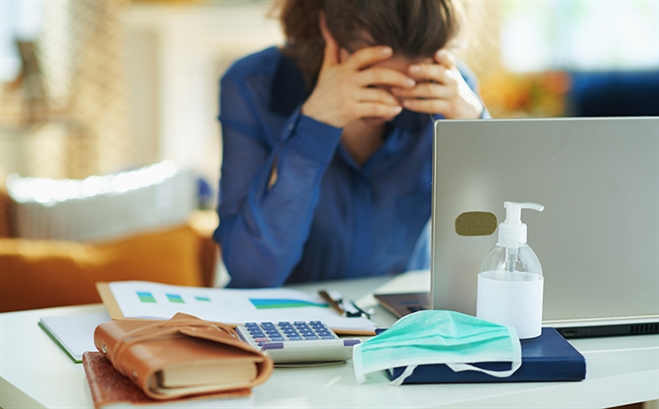Expert Q&A on COVID-19 and Mental Health
June 03, 2020 by Meredith Trimble

What are the surprising ways COVID-19 has impacted mental health? What differentiates this from other crises? What are good ways to deal with worry or fear? Find these answers and more in this interview with Dr. Kevin Gilliland, clinical psychologist at Innovation 360 in Dallas, Texas.
How has COVID-19 impacted mental health?
COVID-19 has really taxed our mental health in ways that have surprised us, and that's mainly because we just didn't realize how much other people and our routine actually helped us function well. We tend to think, "Oh, no, I'm really disciplined." In actuality, we had routines that helped us to be really disciplined, and that has surprised us. Even people who don't have a high relational need have been surprised when it all got pushed to almost zero.
9/11 certainly had a big impact, but this feels different. Why?
In the aftermath of 9/11, we were still able to interact with people. We still had some routine even though it had this emotional, psychological weight to it. We could still connect with people. We could still step into the things that help us manage stressful events. It was also somewhat regional. The experience in New York was a very different experience than the rest of the country. COVID-19 affects the entire world. No one, literally no one, is immune from the impact of this virus, whether it's from a health or economic standpoint.
Are there any tips to help people deal with anxiety?
Worry or anxiety is significant when it reaches a point where it starts to interfere in the things in our lives that we love or that we need, like our sleep, or our energy level, or our focus. I work with a physician, Tim Church, who does a lot of work on nutrition and wellness. In an interview I had with him not too long ago, we talked about the importance of setting goals. “I want to have the best day I can possibly have today. I want to navigate it well, I want to make sure I get enough sleep, I want to eat something healthy, I want to be physically active." Essentially, we just want to win the day, and that's become my mantra. I love that summary of, "I just am focused on winning today. I want to kind of be productive and get some things done, but what have I done to take care of myself physically and mentally?” And if I do some of those things, it actually helps build my immune system, and that's one of our most pressing issues right now.
How has technology helped us during this crisis?
I have been on FaceTime and Zoom more in the past two months than I have in my lifetime. We’ve all gotten more comfortable with it, and I think that is really good. We’re starting to dislike it now because it's become the main thing. It shouldn't be the main thing, but when we get back to being together, I think we'll have new technology resources that will have a really positive impact on our lives, both with work and personally.
I think it's fair to say if we didn't have technology, the number of those infected as well as deaths would be significantly greater. If we didn't have the ability to see and interact in a way that's closer to the real thing, we would have pushed out far sooner, this would have spread much quicker, and the consequences would have been more significant.
As we move into a “new normal,” what are some things we can do to better adjust?
Focus on sources of information that are health-related and factual. It's such an emotional situation that worry is contagious, and we can start to act in irrational ways. We are going to have to step in cautiously and try not to assign a right and wrong to what others are doing. We need to allow some kindness and grace, like, "you may have some risk factors I don't know about. You might live with somebody, and that's why you're being really cautious.” We just never know what might be a legitimate risk factor and what might be worry or anxiety, and it doesn’t really matter. There is such a broad response to this. We’ve got to be respectful of where others are, so be mindful of that, and be thoughtful.
Any final thoughts for people trying their best to manage right now?
Anxiety and worry don’t want to be fair. They only want to look at the possible bad things. But there are good things. Don’t just look at the good things, but grab them. Hang onto them. Build a snowball of positive things throughout the day. You'd be surprised at how just focusing on the little things can have a really big impact. Understand that the way you feel is normal. You feel abnormal. Well, feeling abnormal in an abnormal situation is a sign that you're doing okay.